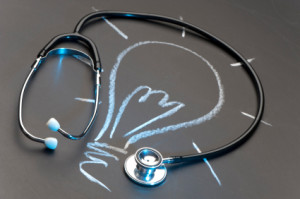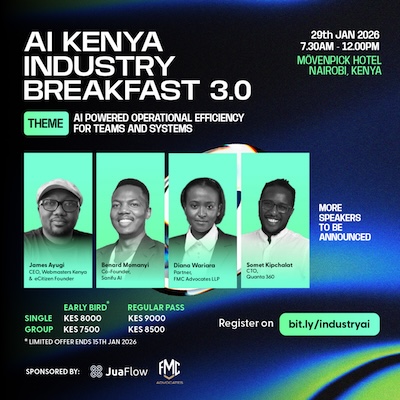
A team from the University of Nairobi has been awarded US$120,000 for an innovation designed to tackle child deaths using a bar-coded Vaccination/Mother and Child Wellness Card that tracks vaccinations and rewards mothers with discounts on farm products.
The scheme, successfully piloted in North Western Kenya, is one of four African initiatives to have won a share of the 2014 GSK and Save the Children Healthcare Innovation Award. The initiative was highlighted during a roundtable discussion with stakeholders and policy makers convened by GSK and Save the Children today to discuss the impact of the award on health innovation trends in Kenya.
In rural Kenya, many families are unable to have their children and expectant mothers fully immunised due to the distance they live from the nearest health clinic and cost of the journey, along with challenging vaccine fees. Child immunisation is seen as a critical measure to reduce death rates in children aged under five years, which currently stand at 71 per 1,000 live births in Kenya.
“The vaccination card uses a unique model, never used anywhere else in the world, to address the challenges of under-vaccination and food security, so parents are no longer forced to choose between vaccinating their child and buying seed for the season’s planting. Thanks to the card, children are vaccinated and protected against preventable illnesses for the rest of their lives and households enjoy better harvests which safeguard their nutrition and livelihoods,” said Dr. Benson Wamalwa, University of Nairobi spokesperson
The vaccination card automatically updates when a newborn is registered and each time the child and/or mother receives a vaccine. It then allows the mother discounts on farm products, such as seeds and fertilizer, from Agrovets shops run by the University’s partner agency.
Ramil Burden, Vice President, Africa and Developing Countries, GSK, said: “Widening vaccination coverage to help reduce the number of deaths in children under five is a key aim of our partnership with Save the Children. The vaccination card initiative has demonstrated real innovation in helping increase immunisation rates and has ignited a grassroots movement, which is acting as a catalyst for community-led healthcare.”
Through a successful pilot of the vaccination card in rural North Western Kenya, where it is now being utilised, the innovation has improved the lives of more than 2,000 rural families and touched more than 9,500 people. The pilot scheme saw vaccination rates increase from 55 per cent to 95 per cent in participating villages, with a total of 1,550 under-fives and 358 expectant mothers receiving full immunisation.
The proportion of newborns delivered at home by traditional birth attendants who were brought to a health facility for their first immunisation rose from 20 per cent pre-pilot to 89 per cent in April 2014. Women’s attendance at ante-natal clinics also rose from 25 per cent to 90 per cent. The team at the University of Nairobi have said that child vaccination records are now highly valued by the community because they are linked to family livelihoods, nutrition and economic wellbeing.
The University plans to use the Award money to significantly expand the scheme. The team plans to reach approximately 50,000 under-fives and 14,000 pregnant women over a two year period, increasing demand for health services and improving nutrition for approximately 20,000 households in the region.
The initiative has had particular success among smallholder farmers. Low income families are now able to access hybrid seeds and fertilizer to boost productivity on their small farms. The pilot found that those households participating in the scheme had subsequently seen an increase in crop yields on their smallholdings, for example, a 70 per cent rise in beans harvested.
In order to bring life-saving healthcare to the hardest to reach children, there is a need for ambitious new ideas and collaboration. So it is fantastic that the Healthcare Innovation Award has recognised an innovation that is boosting vaccination rates and helping to save children’s lives. Through the recognition and funding from this award this initiative can help make a bigger impact for some of the most vulnerable children,” said Duncan Harvey, Country Director, Save the Children Kenya.
The Healthcare Innovation Award is a key initiative delivered as part of an ambitious partnership between GSK and Save the Children, which aims to deliver a new model for corporate-charity working to help save the lives of one million of the world’s most vulnerable children.





